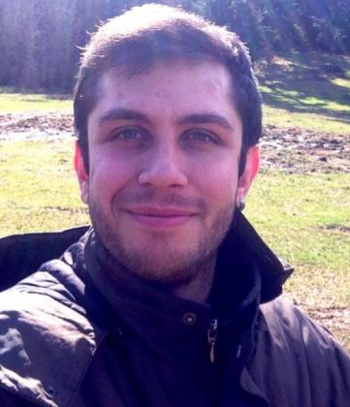Onur Erk Kavlak

Rolff Group - Evolutionary Biology
Institute of Biology
Freie Universität Berlin
PhD Candidate
14195 Berlin
PhD: Institute of Biology Freie Universität, Berlin/Germany (11/2020-present)
MSc: Ankara University Biotechnology Institute, Ankara/Turkey and Max Planck Institute for Evolutionary Biology, Plön/Germany (09/2017-12/2019)
BSc: Yeditepe University Genetics and Bioengineering Department, Istanbul/Turkey (08/2012-06/2017)
Hi Everyone. I am a PhD student who is currently working on a resistance evolution of pathogens against antimicrobial peptides. I have been interested in microbial evolution since my Bachelor’s. In the future, I want to gain a strong background in microbial ecology and evolution.
During my BSc study, I experimentally tested the adaptation of bacteria to weak acid stress by using a sequential batch reactor technique. Our main objective was to study the dynamics and underlying factors of bacterial adaptation to an environmental stressor. Then I had a chance to expand my knowledge about microbial evolution by doing a field experiment in my MSc. In this way, I explored the fitness consequences of outcrossing and inbreeding on wild yeast in nature. Both studies encouraged me to pursue my interest in microbial evolution.
Now, as a PhD candidate under the AG Rolff group, I am focusing on the Galleria mellonella (wax moth)-E. coli MG1655 host-pathogen system to unravel resistance evolution against antimicrobial peptides. Antimicrobial peptides (AMPs) are promising molecules to avoid pathogen resistance due to their unique mode of action including the disruption of the cell wall and membrane structure of pathogens. Therefore, AMPs can kill pathogens more effectively and decrease the resistance evolution chance compared to antibiotics. However, recent studies showed that pathogens can also evolve resistance to AMPs. For this purpose, to understand more about the possible effects of AMPs on resistance evolution, I aim to (i) quantify the rate of bacterial resistance evolution towards combinations of up to 4 AMPs, (ii) identify the underlying mechanisms of bacterial resistance and quantify their effects on resistance, cross-resistance, and collateral sensitivity, (iii) quantify the fitness costs of resistance evolution both in vitro and in vivo, and the presence and absence of the gut microbiota.
